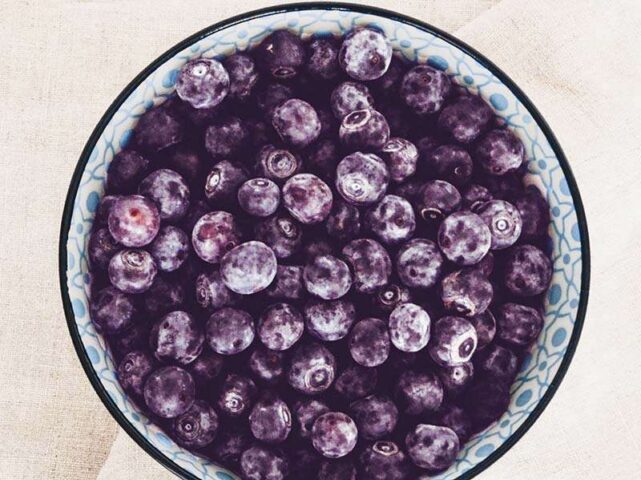Coffee and the Gut Microbiome: Brewing Insights into Health Impacts

By Gabrielle Finora Nutritional Sciences, Cornell University ’24
Coffee is one of the most popular beverages in the world. Unsurprisingly, its effect on the human body is a popular research topic. We all know that drinking coffee can influence our energy levels and sleep cycles. Research now points to a growing topic of interest: coffee’s effect on the gut microbiome.
Dietary Contributions to Microbiome Health
The gut microbiome is a community of microbes that are both helpful and even potentially harmful. A healthy gut maintains the good microbes and keeps the harmful species at bay. Infectious diseases, dietary patterns, and the prolonged use of antibiotics can cause disturbances in the balance between helpful and harmful species. Furthermore, no two individuals have the same microbiome due to family history, genetics, and medication use (The Microbiome, 2022). Diet plays a primary role in the maintenance of microbes. With coffee being such a popular drink, it is critical to understand how it affects our health beyond energy levels.
Coffee’s Nutritional Profile and Potential Health Benefits
Aside from caffeine, coffee is a plentiful source of vitamin B2 (riboflavin), magnesium, and plant chemicals such as polyphenols and alkaloids (Coffee, 2023). According to a review published by researchers from the Department of Nutrition at the Chan School of Public Health of Harvard University, it has been hypothesized that polyphenols have protective effects in acute and chronic diseases, including obesity, neurodegenerative diseases, type 2 diabetes, cardiovascular disease, and cancer. It is also hypothesized that there are potential interactions with the gut microbiota, increasing beneficial gut bacteria while inhibiting harmful species. However, further research is needed to confirm these hypotheses (Cory, 2017).
Protective Effects Against Diseases: The Role of Alistipes and Faecalibacterium
A more recent study explored coffee’s effect on communal bacterial species in the gut. Low coffee consumption was considered below 83 mg daily. High consumption was greater than 83 mg daily. These values equate to less than two cups versus greater than three cups daily. The study concluded that “greater caffeine and coffee intake was associated with greater evenness and richness of the colonic microbiome, with increased Alistipes and Faecalibacterium abundance and lowered Erysipelatoclostridium abundance” (Dai, 2023). Alistipes have had protective effects against certain diseases, such as liver fibrosis, cardiovascular disease, colitis, and cancer immunotherapy. Other studies have linked this bacterium to colorectal cancer and mental signs of depression (Parker, 2020). Faecalibacterium prausnitzii is currently being studied as a potential treatment for obesity, as the species abundance is reduced in obese individuals (Maioli, 2021). Finally, Erysipelatoclostridium ramosum is potentially harmful to health at excessive levels and linked with metabolic syndrome[1] (Morrison, 2016).
Risks and Benefits: How Much Coffee is Good for You?
There is still much to uncover about coffee and its relationship with your microbes. But there are a few effects we already know to exist. Coffee consumption is more likely to benefit health than harm, with the largest risk reduction for various health outcomes at three to four cups daily. Specifically, consumption is associated with a lower risk of several cancers, neurological, metabolic, and liver conditions (Pool, 2016). Coffee is also a proposed protective element for colon cancer, but the evidence is inconclusive (Schmit, 2016).
In conclusion, if you choose to drink coffee, it will not really hurt you. For now, enjoy your morning cup of joe knowing that it’s likely doing you more good than harm.
[1] Metabolic syndrome is multiple conditions that occur together, increasing the risk of developing heart disease, stroke, and type 2 diabetes. It can increase blood pressure and blood sugar. Additionally, it can produce excess fat around the waist and raise blood cholesterol levels (Metabolic syndrome, 2021).
References:
Coffee. The Nutrition Source. (2023, February 2). https://www.hsph.harvard.edu/nutritionsource/foodfeatures/coffee/
Cory, H., Passarelli, S., Szeto, J., Tamez, M., & Mattei, J. (2017). The Role of Polyphenols in Human Health and Food Systems: A Mini-Review. Frontiers in Nutrition, 5. https://doi.org/10.3389/fnut.2018.00087
Dai, A., Hoffman, K., Xu, A. A., Gurwara, S., White, D. L., Kanwal, F., Jang, A., B., H., Petrosino, J. F., & Jiao, L. (2023). The Association between Caffeine Intake and the Colonic Mucosa-Associated Gut Microbiota in Humans—A Preliminary Investigation. Nutrients, 15(7), 1747. https://doi.org/10.3390/nu15071747
Gilbert, J., Blaser, M. J., Caporaso, J. G., Jansson, J., Lynch, S. V., & Knight, R. (2018). Current understanding of the human microbiome. Nature medicine, 24(4), 392. https://doi.org/10.1038/nm.4517
Maioli, T. U., Torres, L., Barbosa, S. C., Martins, V. D., Langella, P., Azevedo, V. A., & Chatel, J. (2021). Possible Benefits of Faecalibacterium prausnitzii for Obesity-Associated Gut Disorders. Frontiers in Pharmacology, 12, 740636. https://doi.org/10.3389/fphar.2021.740636
Mayo Foundation for Medical Education and Research. (2021, May 6). Metabolic syndrome. Mayo Clinic. https://www.mayoclinic.org/diseases-conditions/metabolic-syndrome/symptoms-causes/syc-20351916
Morrison, M., Krause, L., & Davies, P. S. (2016). Dairy and plant-based food intakes are associated with altered fecal microbiota in 2 to 3-year-old Australian children. Scientific Reports, 6(1), 1-8. https://doi.org/10.1038/srep32385
Parker, B. J., Wearsch, P. A., & Veloo, A. C. (2020). The Genus Alistipes: Gut Bacteria With Emerging Implications to Inflammation, Cancer, and Mental Health. Frontiers in Immunology, 11, 522172. https://doi.org/10.3389/fimmu.2020.00906
Poole, R., Kennedy, O. J., Roderick, P., Fallowfield, J. A., Hayes, P. C., & Parkes, J. (2016). Coffee consumption and health: Umbrella review of meta-analyses of multiple health outcomes. The BMJ, 359. https://doi.org/10.1136/bmj.j5024
Schmit, S. L., Rennert, H. S., Rennert, G., & Gruber, S. B. (2016). Coffee Consumption and the Risk of Colorectal Cancer. Cancer epidemiology, biomarkers & prevention: A publication of the American Association for Cancer Research, cosponsored by the American Society of Preventive Oncology, 25(4), 634. https://doi.org/10.1158/1055-9965.EPI-15-0924
The Microbiome. The Nutrition Source. (2022, July 25). https://www.hsph.harvard.edu/nutritionsource/microbiome/#:~:text=The%20microbiome%20consists%20of%20microbes,symbiotic%20microbiota%20coexist%20without%20problems.







